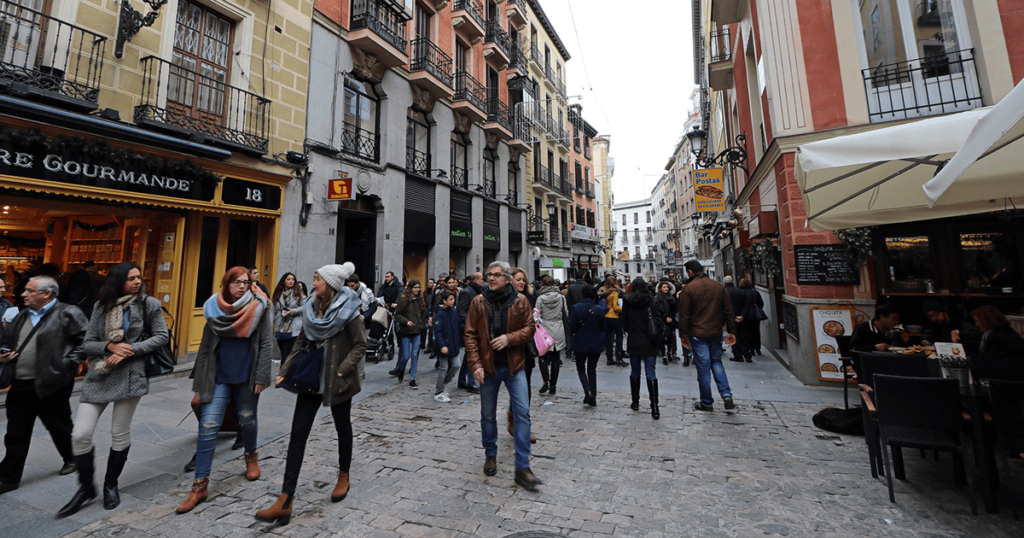
When I lived in Madrid, my street was Calle Ferrocarril, which translates to Railway Street, but I never slipped into English when I mentioned the street name. Around the corner, though, where my bus stopped, was Calle de la Batalla del Salado, which I dubbed Salty Battle Street. Even after I’d applied this private name for months, it still made me smile to think of it, a battle served up, a lot of generals leaning over it like anxious chefs, seasoning the conflict to their taste.
Contact lenses are lentillas, a word that with the y sound of the double l is to my ear very like lentejas, lentils. Partly for fun and partly out of laziness, sometimes in English and sometimes in Spanish, I often say that I’m putting in or taking out my lentils when it is lenses that I’m balancing on my finger tip, about to slip onto my eye, and the word turns a simple routine into a trick.
A French boyfriend speaking English once described his day as fruitable, and of all the words he spoke to me, that’s the one I best remember. A day not producing fruit but becoming fruit. What will it be? Fruit salad? Or a smoothie? Or all the tangy goodness squeezed from his day into one exhilarating gulp of juicy essence? I picture him, facing his day, judging the possibilities.
How many other amusing confusions enliven my life? Sometimes it’s just English that lights up my days, as when I think of someone about to toss back a drink. “Here’s mud in your eye,” I imagine this fellow saying as he lifts his whiskey in a dim pub. The expression is more common in Britain than the United States, and maybe it’s the British accent, or the tweed cap, or the long, sad face, or the waiting sheepdog the man whistles up as he tromps homeward in his Wellies that makes me smile, though the two explanations for the expression that I’ve found are not funny: either the mud of the trenches of World War One or the mud Jesus rubbed over the eye of the blind man to restore his sight.
With Salty Battle Street, the explanation for the name is not speculation but a matter of historical record, and it’s not a salty battle but a salty river, the río Salado, the salt leached from rocks at the source and carried along its route down from the mountains to the sea. There, where the river spreads into the Atlantic, on October 30, 1340, two armies met—the Catholic kings’ and the Muslim sultans’—in the battle of the río Salado. Thousands fought, thousands died, the river probably ran red. Paintings depict the carnage. Yet more than 600 years later, the name made me smile. It’s nothing to laugh about, of course. But crying over spilt blood does no good either. Meanwhile, though, fruitable—that’s quite funny.

